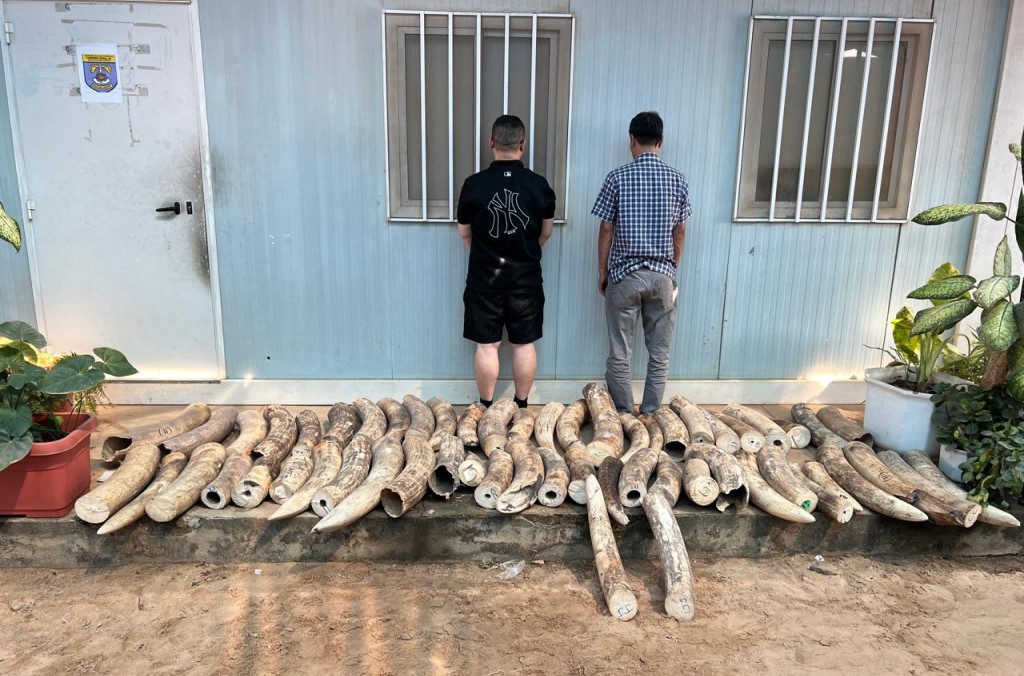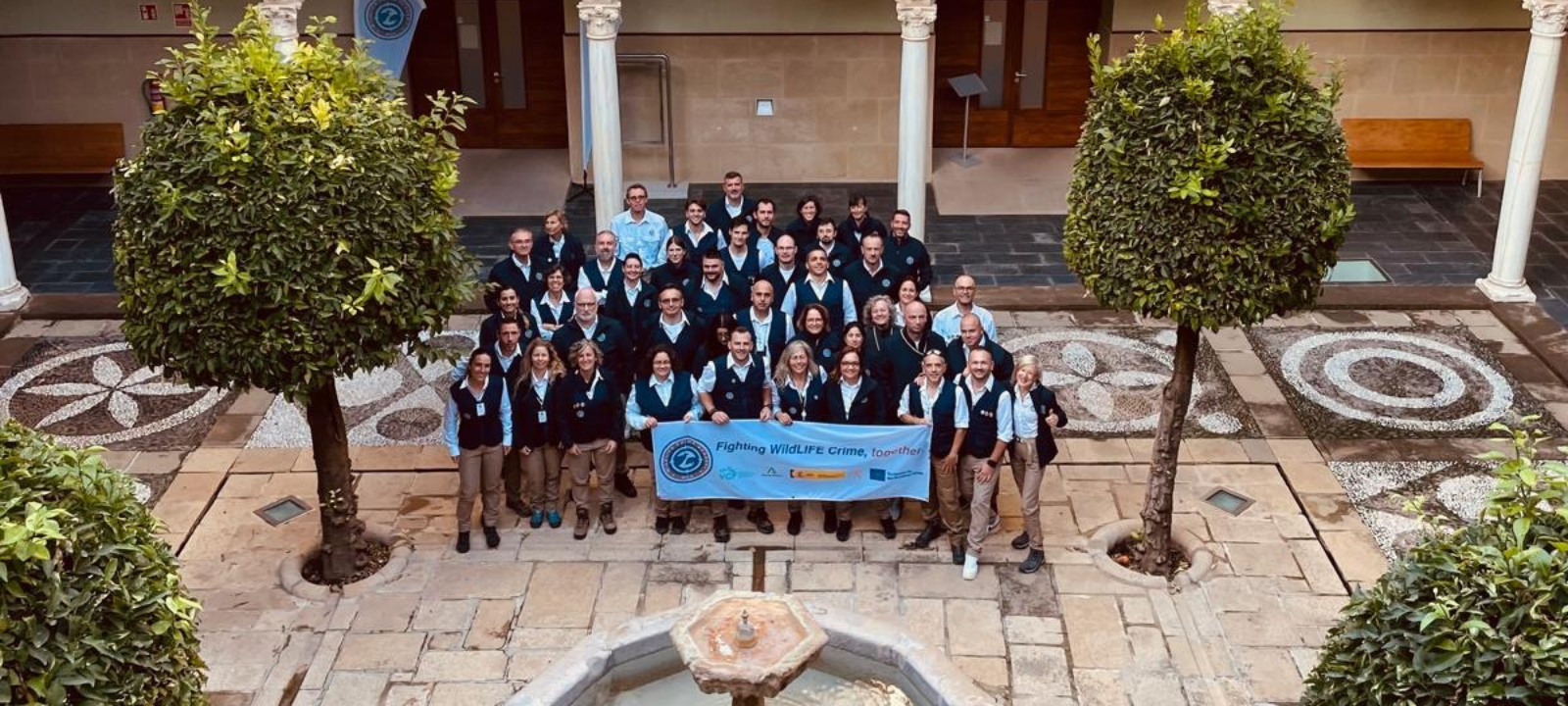In a major breakthrough, Serbian authorities have strengthened efforts to tackle the illegal pesticide trade, carrying out a series of targeted operations that have led to multiple arrests and the seizure of thousands of hazardous chemical packages. This decisive action is a long-overdue yet commendable step by law enforcement to fight a persistent problem that has posed serious risks to public health, the environment, and biodiversity for years. By cracking down on the smuggling and distribution of toxic substances, authorities have sent a clear message: environmental crimes will not be tolerated.
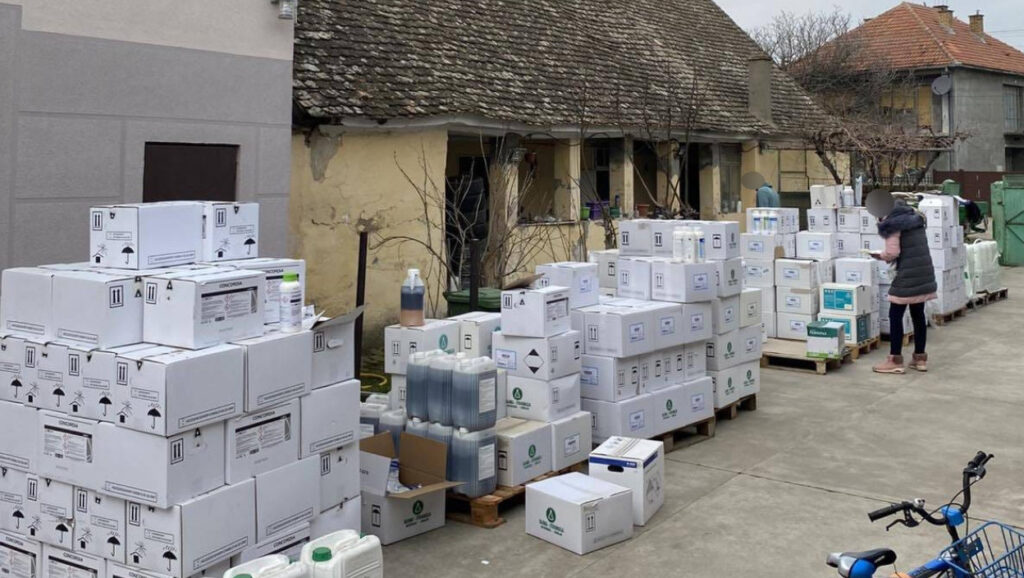
A series of major seizures
December 2024 – Stara Pazova Raid
The crackdown began in December 2024 with a well-coordinated investigation that led to the arrest of S. Š. (1974) in Stara Pazova, suspected of illegally importing poisons into Serbia from Croatia. During the operation, authorities seized approximately 6,500 poisonous tablets of a highly toxic and flammable insecticide, strictly prohibited for sale and extremely dangerous to humans, animals, and the environment.
S. Š., lacking authorization and professional knowledge to handle poisons, is suspected of selling toxic tablets individually via social media, with prices varying by quantity. The seized poison is now under surveillance and control, and the suspect faces criminal charges for illegal import, unauthorized handling of hazardous substances, and unlawful business activities.
Authorities remain committed to a zero-tolerance policy on environmental crime and urge citizens to report any such offences. The operation was carried out by members of the Ministry of the Interior and the Crime Suppression Service of the Criminal Police Directorate, in cooperation with the Police Directorate in Sremska Mitrovica, the Basic Public Prosecutor’s Office in Stara Pazova, and the Republic Phytosanitary Inspection.
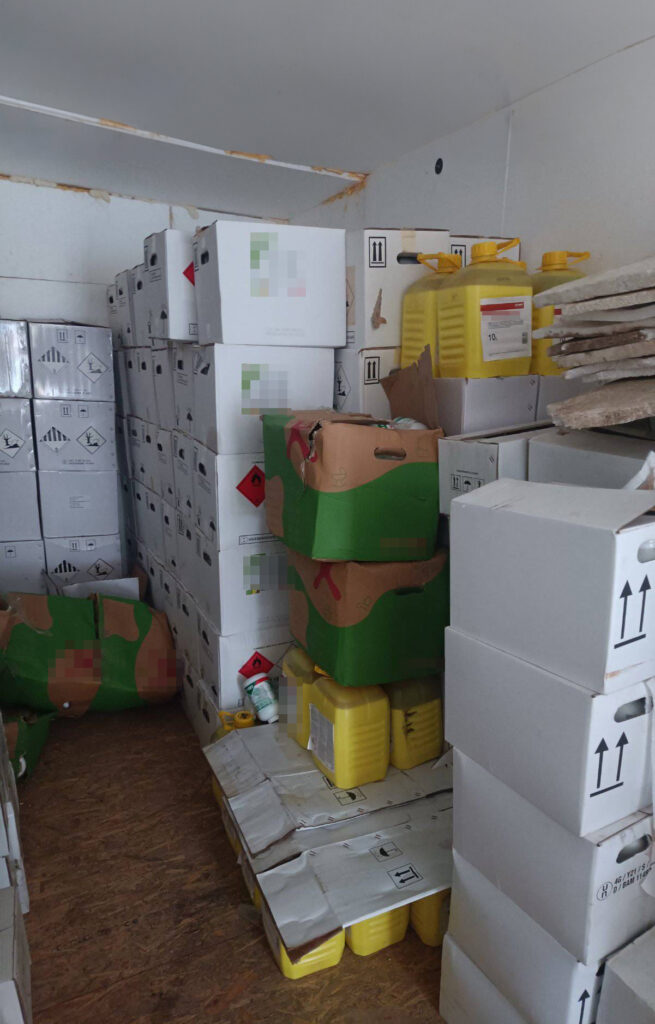
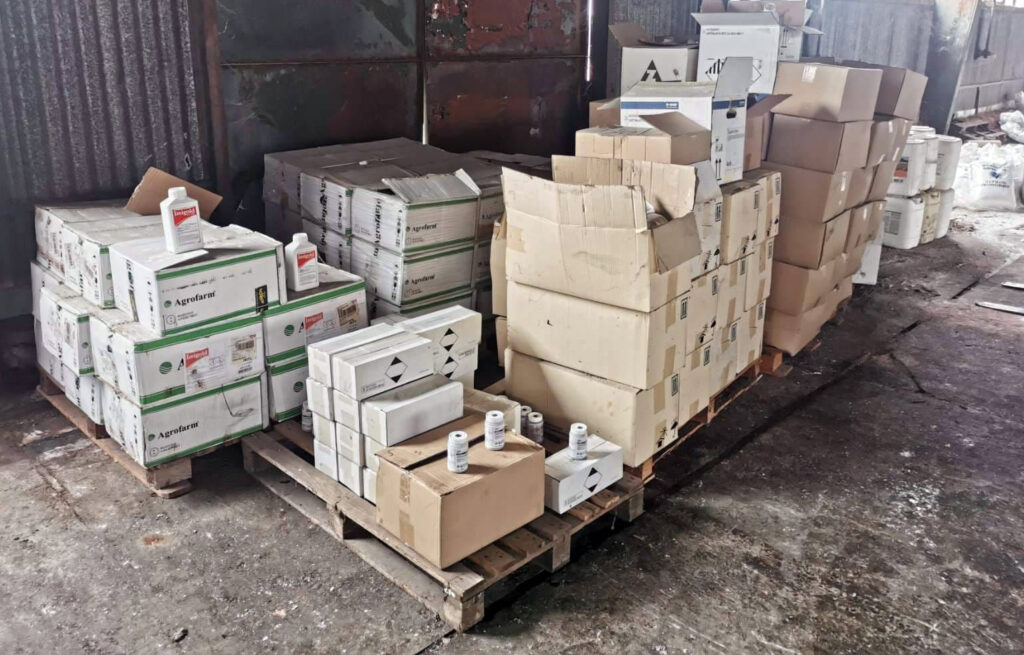
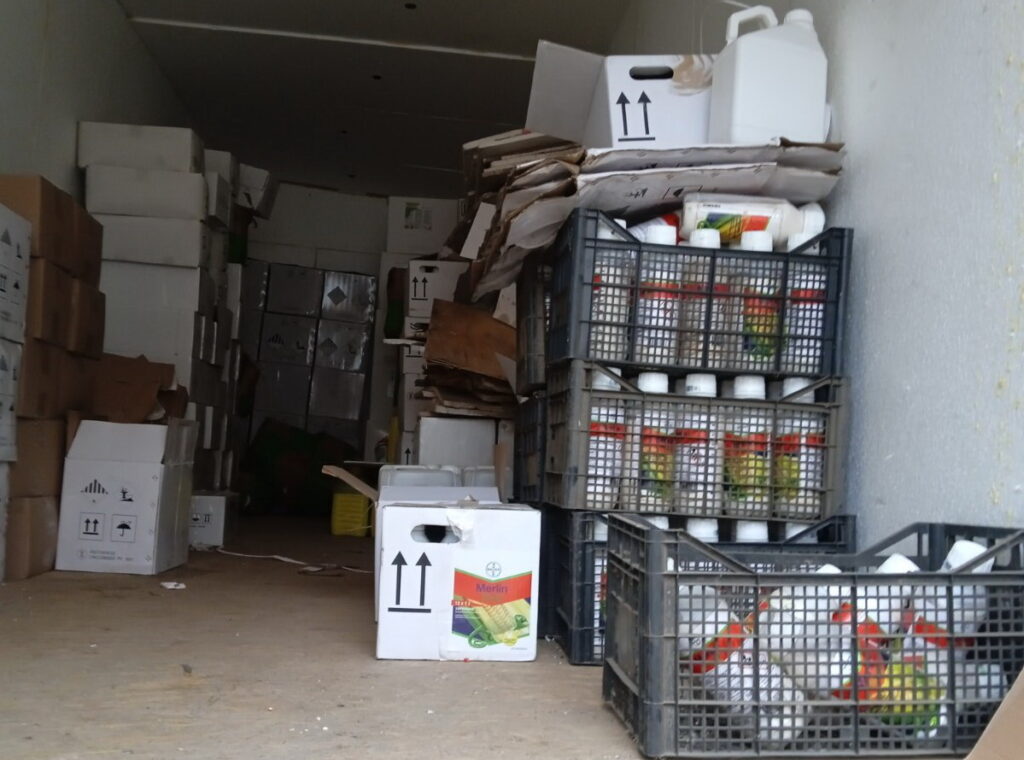
Photos (c) MUP
February 2025 – Bečej Operation
In February 2025, Serbian authorities launched another major operation in Bečej, uncovering a large-scale pesticide trafficking ring. Two suspects, D. N. (1977) and F. Ž. (1988), were arrested, and authorities seized 19,000 packages of illegal herbicides, pesticides, and insecticides.
Many of these chemicals were banned in Serbia due to their extreme toxicity. The scale of this operation was staggering—not only did police confiscate illicit pesticides, but they also seized two million dinars, 10,000 euros, and six luxury vehicles, with the total value of confiscated assets exceeding one million euros.
This raid exposed the highly profitable nature of the illegal pesticide trade and underscored the urgent need for continued enforcement. By dismantling this network, authorities made it clear that environmental crimes will carry serious consequences.
The operation was carried out by members of the Ministry of Internal Affairs and the Criminal Police Directorate – Crime Suppression Service, in cooperation with the Kikinda Police Directorate, under the order of the Basic Public Prosecutor’s Office in Bečej.
February 2025 – Multi-City Sweep
Shortly afterwards, another large-scale enforcement action took place across multiple locations, including Zrenjanin, Sremska Mitrovica, Subotica, and Pančevo, leading to the arrest of Ž. T. (1989) from Stara Pazova for illegally importing, storing, and selling hazardous substances.


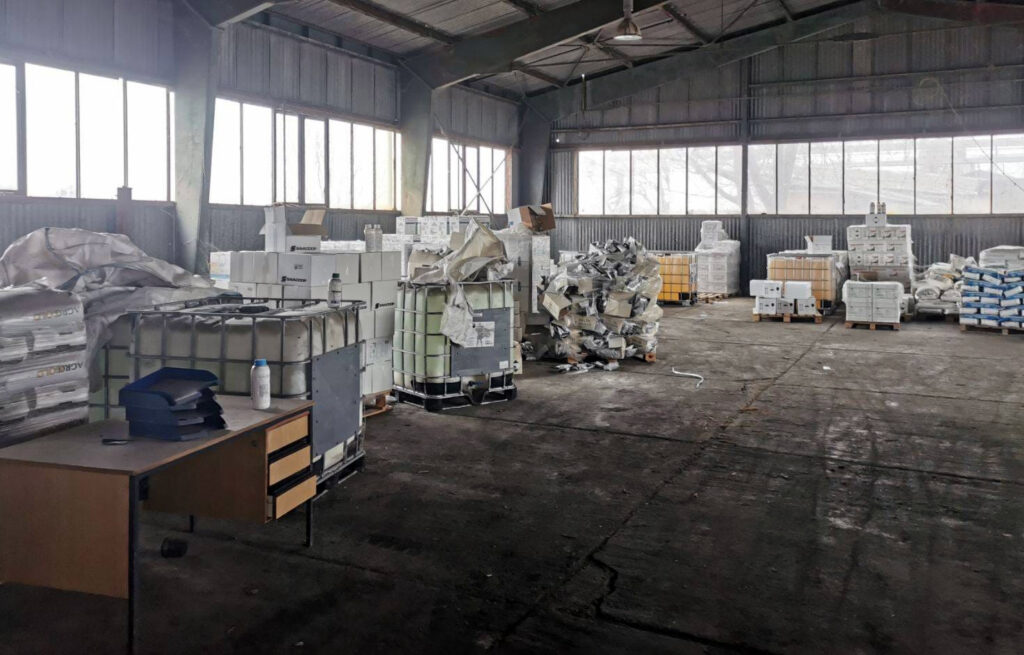
Further investigations resulted in criminal charges against business owners and managers of agricultural supply companies, revealing that the illegal pesticide trade extends beyond individuals to organized networks. Authorities seized 8,975 packages of unregulated pesticides, many expired or lacking proper documentation, with an estimated total value of 30 million dinars.
This operation was part of an extensive effort to suppress the illegal trade of plant protection products and was carried out by members of the Ministry of Internal Affairs, the Criminal Police Directorate, the Crime Suppression Service, and police officers from the police stations in Zrenjanin, Sremska Mitrovica, Subotica, and Pančevo, in cooperation with the Environmental Protection Inspectorate and the Phytosanitary Inspectorate, under the order of the prosecutor’s office.
A Step in the right direction
For years, illegal pesticides have circulated largely unchecked in Serbia, leading to poisoning incidents, endangering public health, and threatening wildlife, particularly scavengers like vultures. However, these recent operations indicate that law enforcement is now taking a more proactive stance. The police have demonstrated an efficiency and commitment that was previously lacking, producing tangible results. These efforts deserve recognition, proving that with the right strategies, real progress can be made in combating environmental crime.
What stands out about these recent operations is their scale and coordination. Authorities are not simply reacting to isolated incidents but actively working to dismantle larger networks involved in the illegal pesticide trade.
The hidden costs of illegal pesticides
Beyond financial crime, the illegal pesticide trade has devastating consequences for Serbia’s ecosystems and human health. Many banned substances, such as Carbofuran, are extremely toxic and have been directly linked to mass wildlife poisonings. Between 2000 and 2020, an estimated 2,300 vultures perished in the Balkans due to poisoning, significantly undermining conservation efforts for these already vulnerable species. Poisoned carcasses left in the wild don’t just harm vultures—they pose risks to other scavengers, mammals, and even domestic animals. The misuse of these chemicals disrupts entire food chains and triggers ecological consequences that can take years to reverse.
Illegal pesticides also present severe risks to human health. Exposure to these chemicals can cause nausea, dizziness, respiratory failure, and, in extreme cases, death. They contaminate soil and water supplies, leading to long-term pollution that threatens agriculture and drinking water safety. Unregulated pesticides often end up in food chains, increasing the risk of chronic illnesses, neurological disorders, and cancers among exposed populations.
Looking ahead
While the recent success of law enforcement is commendable, it is only the beginning of a long-term effort to eradicate illegal pesticide trafficking in Serbia. The volume of seized chemicals suggests that many more undiscovered networks remain active, and without continued enforcement, the problem could easily resurface. Strengthening inspections, tightening border controls, and imposing stricter penalties on offenders are critical next steps. Public awareness campaigns will also play a crucial role in reducing demand by educating farmers and consumers on the serious risks these substances pose. Regional cooperation is particularly vital in tackling this issue, as many illegal pesticides are smuggled across borders before reaching Serbia’s black markets.
Preventing illegal wildlife poisoning needs efforts beyond combatting the illegal pesticide trade. Projects like BalkanDetox LIFE have been instrumental in reducing illegal wildlife poisoning by strengthening national capacities, fostering collaboration between authorities, and raising awareness. Supporting initiatives like BalkanDetox LIFE, alongside rigorous law enforcement measures, will help Serbia and its Balkan neighbours move toward a future where the misuse of pesticides no longer threatens people, wildlife, or the environment.

